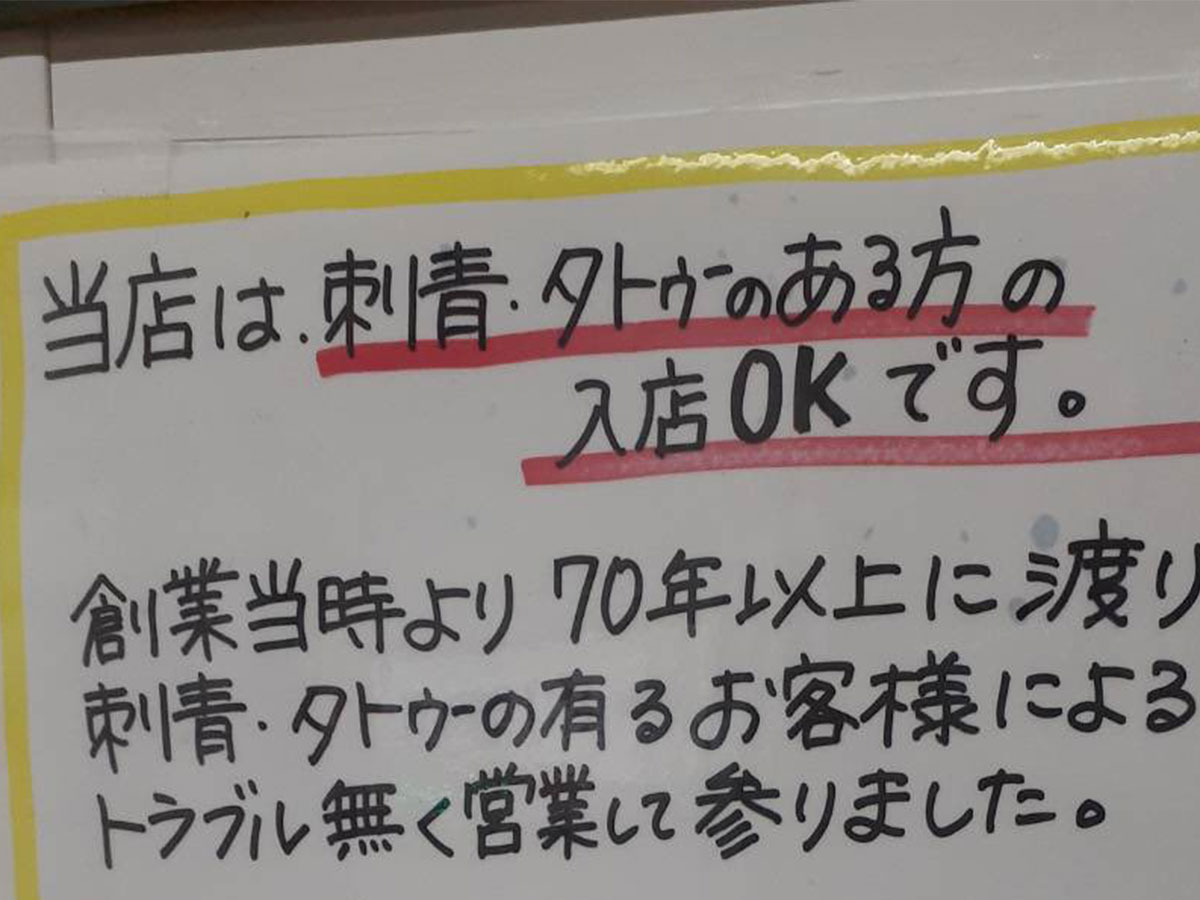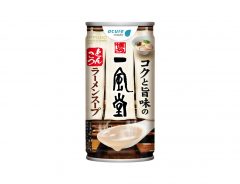
Source: riyo (@riyo_kcsn) - image used with permission
Public bathhouse in tattoo-averse Japan goes viral for its inclusive welcome sign
- Tags:
- Foreigners / inclusion / Irezumi / japanese tattoo / public bath / SDGs / Sento / Tattoo
Related Article
-

Nagano farmers and restaurants team up to provide home vegetable meals during pandemic
-

Highest grade wagyu served as traditional Japanese woodblock prints in delicious meat art
-

This Golden Week in Tokyo, experience Kintsugi golden joinery, Japan’s sustainable pottery art
-

All-organic and plant-based delicatessen Glean by OneBite opens in Shibuya
-

The Bear Paw Café: A Kawaii Way of Employing People With Mental Health Issues
-

Drinkable Ippudo tonkotsu pork ramen broth released in Japanese vending machines


Japanese Twitter user riyo (@riyo_kcsn) posted a picture of a sign he saw when he visited the sentō (a type of public bathhouse) 『天然温泉 湯どんぶりの栄湯』"Natural Hot Spring Yudonburi no Sakaeyu" in Tokyo's Taito Ward. What was written on the sign became quite a hot topic.
In Japan, many swimming pools and public bathhouses restrict the entry of patrons with tattoos on their bodies. Although attitudes are changing, for many Japanese people, particularly the older generation, tattoos are strongly associated with organized crime. Therefore, no matter what kind of tattoo it is or whether the patron is Japanese or foreign, many establishments choose to enforce a blanket rule in order to avoid any complaints or trouble from other patrons.
However, here at this public bathhouse, the owners took a different stance:
Image reproduced with permission from riyo (@riyo_kcsn)
Persons with 刺青 irezumi (traditional Japanese tattoos) or タトゥー tatū (Western-style tattoos) are OK (welcome) to use our establishment.
In the more than 70 years since we began, we have run our establishment without any problems caused by customers with tattoos.
However, as time goes by, more and more bathing facilities are refusing to admit people with tattoos.
We believe that just because you have a tattoo, it does not mean that you are a nuisance or a disturber of public morals.
However, since they will inevitably make you stand out, we do ask that you refrain from actions that might make other customers feel intimidated such as talking loudly, remaining naked indefinitely (in non-bath areas), etc.
We appreciate your cooperation!
The bathhouse's unusually inclusive policy towards tattoos elicited many comments on Twitter, such as:
In recent years, Japanese people are getting tattoos not only as a fashion statement, but also to express their feelings or to cover up scars. Foreign visitors and residents who wear tattoos are also influencing public opinion.
As values continue to diversify, the number of bathing facilities that accept tattoos may increase in the future.
If you have a tattoo and would like to visit a public bathhouse when you visit Japan, you may want to keep 『天然温泉 湯どんぶりの栄湯』"Natural Hot Spring Yudonburi no Sakaeyu" in mind. The fact that they have an English website shows that they are open to foreigners as well!